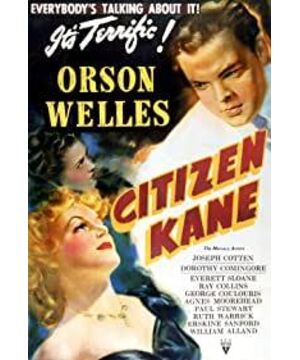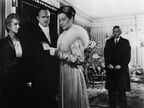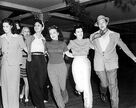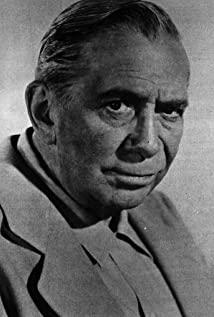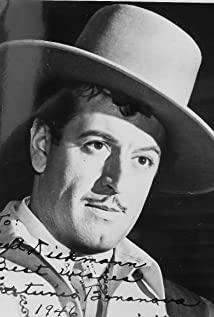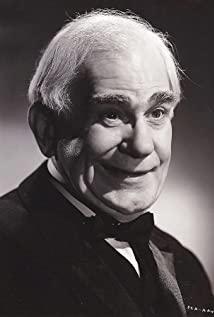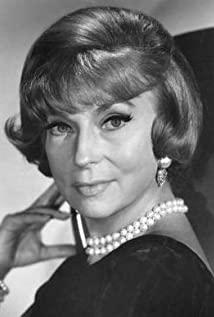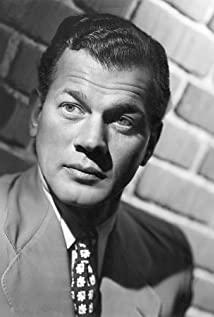The first time I heard about Citizen Kane was probably in a teacher's class. He was explaining the most famous depth-of-field shot in the film. When the mother decides to sign a deal to give up her child, young Kane is playing with a sled outside the window, and the two images are subtly connected through the foreground and the background to a shocking effect.
Watching again because of the needs of the classroom. When I first started watching this time, I hadn't entered the state of the story for a long time. Many parts in the front of the film are directly narrated in English, with a fast speed and a lot of sentences, which made me a little stunned for a while. But this is probably the norm for me watching a lot of foreign language movies, so I am quite used to it, so I can only continue to persevere.
However, the story of the film is very smooth, and it does not take long to show the life of the newspaper tycoon. However, at one point I did feel that the story was too big and thus vague, and guessed it wouldn't be to my liking. I thought the film's status was only highlighted by its outstanding and original audiovisual language, but I was ultimately self-righteous.
I remember that at the end of the film, when the truth of "rose petals" was revealed, my heart seemed to be suddenly touched by something soft. All it takes is the scene where the real rose petals appear, and all those "what I thought" were floating in the air to find their support. It was like a tall and unreachable building. It was originally so cold, but at that moment, it collapsed suddenly. Above the ruins, it was as if a cat was seen, so small and so warm.
I especially like Orson Welles' handling of the question of how the sleigh with 'rose petals' appears at the end to reveal the truth, and that's the key to the film's staying power.
Probably I have seen too many mediocre films, and the truth in those films is always so mediocre that I thought that Kane's truth would not be anything special, but the truth is that I haven't reacted to it yet. Tears fell in an instant.
Orson Welles uses a bird's-eye approach to advance, the camera sweeps very slowly across the mountains of clutter in Kane's huge house, without the focus of the camera's focus in the entire frame. The audience has to be in an empty or dazed state for several seconds, and then the sled appears silently in the picture with almost no psychological presupposition in the audience. When the audience realized that the picture finally seemed to stop, and the sled was exactly what the director wanted everyone to see, they had to think about why the camera stopped there (the words and patterns on the sled were still blurry).
In the next second, the picture immediately turns to the scene where the sled is thrown into the fire. The camera advances, and the audience suddenly realizes that not only is there a sense of satisfaction in regaining the content after a long period of emptying, but it is also suddenly unraveled in their hearts. The mystery of the entire film. For a time, mixed feelings.
All the ambush details in the front seem to have a slender line at the end, and all of them are suddenly connected together. All those ordinary things that were thought to be insignificant, at this moment, have become no longer ordinary. The moment the rose petals appeared, like space-time fusion, it took us back to the snowy day many years ago, when young Kane left his mother on that day. When he picked up the snow crystal ball, he remembered that day, so he walked into the dark alone. In his rich life, he was arrogant, arbitrary, selfish, and indifferent, but he was so lonely. He loves his mother forever, and he misses his childhood till death.
The feeling that this ending gave me also reminded me of two other films. In "Love Letter", the sketch portrait of the secret love suddenly turned over, and Fujii Tree remembered everything about the boy in the past. She was a little shy and wanted to put the portrait in her pocket, but her favorite apron was all over her body. There wasn't even a pocket. In "Heart Flower Road Fang", I thought that Geng Hao and Kang Xiaoyu were the first meeting, but it was the final parting. At the moment when those pictures appeared, time and space suddenly became meaningful. Just like when I saw Kane's sleigh, I felt a sense of loss in an instant, and I was secretly amazed and loved it.
I saw a movie yesterday, called "Famous". After watching it, my friend asked me how I felt, and I said, it was okay, but the reversal didn't shock me. She asked me, how can I shock you? I replied, I don't know. I really don't know, but I think if I can figure out the law that I was shocked by, it seems that the shock will lose its value. I can only cite examples that I have been shocked by, such as Kane's sleigh with rose petals printed on it, such as the sketch portrait of love letters, such as Geng Hao and Kang Xiaoyu's meeting and parting, such as Xuesui never looking back.
Citizen Kane is brilliant, Orson Welles is a genius. With fame, it is.
View more about Citizen Kane reviews


